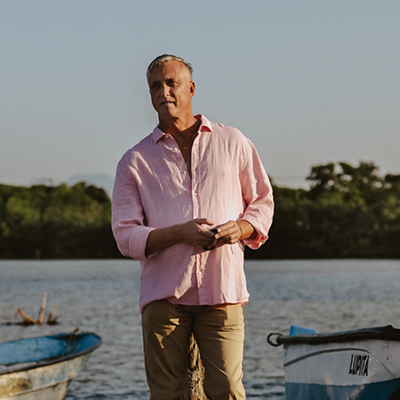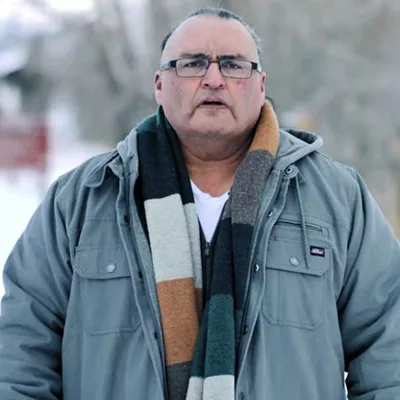Bossenbroek was driving when a speeding car passed him. A quarter-mile up the road, the car crashed, rolling into a ditch.
As Bossenbroek pulled over, the smell of gas permeated the air. Bossenbroek ran toward the still-running vehicle. He ignored the shards of glass that sank into his arm when he reached inside the driver's window, feeling for the key to turn off the ignition.
"I got cut, and this guy was bleeding badly," Bossenbroek said. "I didn't think anything of it, but I should have--I really should have."
It would have been the driver's fifth DUI had he survived the crash, Bossenbroek said.
In October 2001, Bossenbroek was very sick. He was incapacitated in a hospital bed when he received what seemed like an impossible diagnosis: He had full-blown AIDS. Bossenbroek didn't have any knowledge of contracting HIV, because he hadn't been tested after being wounded seven years earlier.
Bossenbroek said he didn't realize the implications of his diagnosis, because his mind had slipped into what he refers to as "AIDS dementia," a delusional state that he remained in for three months.
In the nine months that followed, Bossenbroek's body tried to purge the virus; he lost 130 pounds.
"When you lose all that weight, you lose fat. When all the fat is gone, you lose muscle. I got to the state where I was not able to stand or walk. I was like an infant," Bossenbroek said.
The struggle to regain his body--and more importantly, his life--was long and painful, he said. But it was not impossible.
"It took quite a while to reach the conclusion that what has passed is gone, and I'm not going to get it back," Bossenbroek said. "I have come to find out that there's an awful lot to feel good about."
A major turning point for Bossenbroek came when he became involved with the Southern Arizona AIDS Foundation.
"My case manager ... took me into SAAF, and they had something called Walk in Wednesday," Bossenbroek said. "I did things ... like stacking brochures and putting together condom kits."
That wasn't the first time SAAF positively impacted Bossenbroek's life. After his release from rehabilitation, SAAF provided Bossenbroek with seven hot meals every week, because he was unable to cook.
Today, in part due to SAAF's help, Bossenbroek is doing better--and on Sunday, Oct. 19, he will be one of thousands of people participating in SAAF's annual AIDSWALK.
The AIDSWALK is one of SAAF's most critical fundraisers. All money raised goes toward providing individuals living with HIV/AIDS with vital help such as case management, housing, transportation, food, medical and dental assistance, and support groups.
These programs are extremely important to people like Bossenbroek, who lost his job, house and car after learning that he had AIDS.
This year's AIDSWALK will include the traditional quilt-opening ceremony, an unfolding of blankets that include the names of those who have passed away as a result of AIDS. Each individual patch stands as a memorial for that person and a remembrance for their family and friends.
"There have been a couple of years when I have not been able to watch the quilt ceremony, because ... I began to see the names of people I knew, and lots of them," said Bossenbroek.
He says he also feels a lot of emotions at the start of the 5k walk.
"To me, as a person living with AIDS, it's seeing those 5,000 or 6,000 people supporting me and my peers," said Bossenbroek. "When there are just masses of people walking down the mall, it really does get me."
With the help of SAAF, Bossenbroek has continued to tell his story at schools, businesses and church groups in and around Tucson. At this year's AIDSWALK, those living with HIV/AIDS and those who have been affected by AIDS will also have an opportunity to tell their stories, because Access Tucson will be present to record individuals who want to talk about why they're walking.
Michelle Bart, the director of development for SAAF, said that the stories will later be aired on one of Access Tucson's channels.
Registration for the AIDSWALK takes place at 6:30 a.m., Sunday, Oct. 19, on the central mall at the University of Arizona. The AIDSWALK begins at 7 a.m. for those wishing to participate in the 10k run, and at 8:30 a.m. for those participating in the main event, the 5k walk. For more information or to register online, visit the event Web site. Contact SAAF at 791-WALK with questions.






